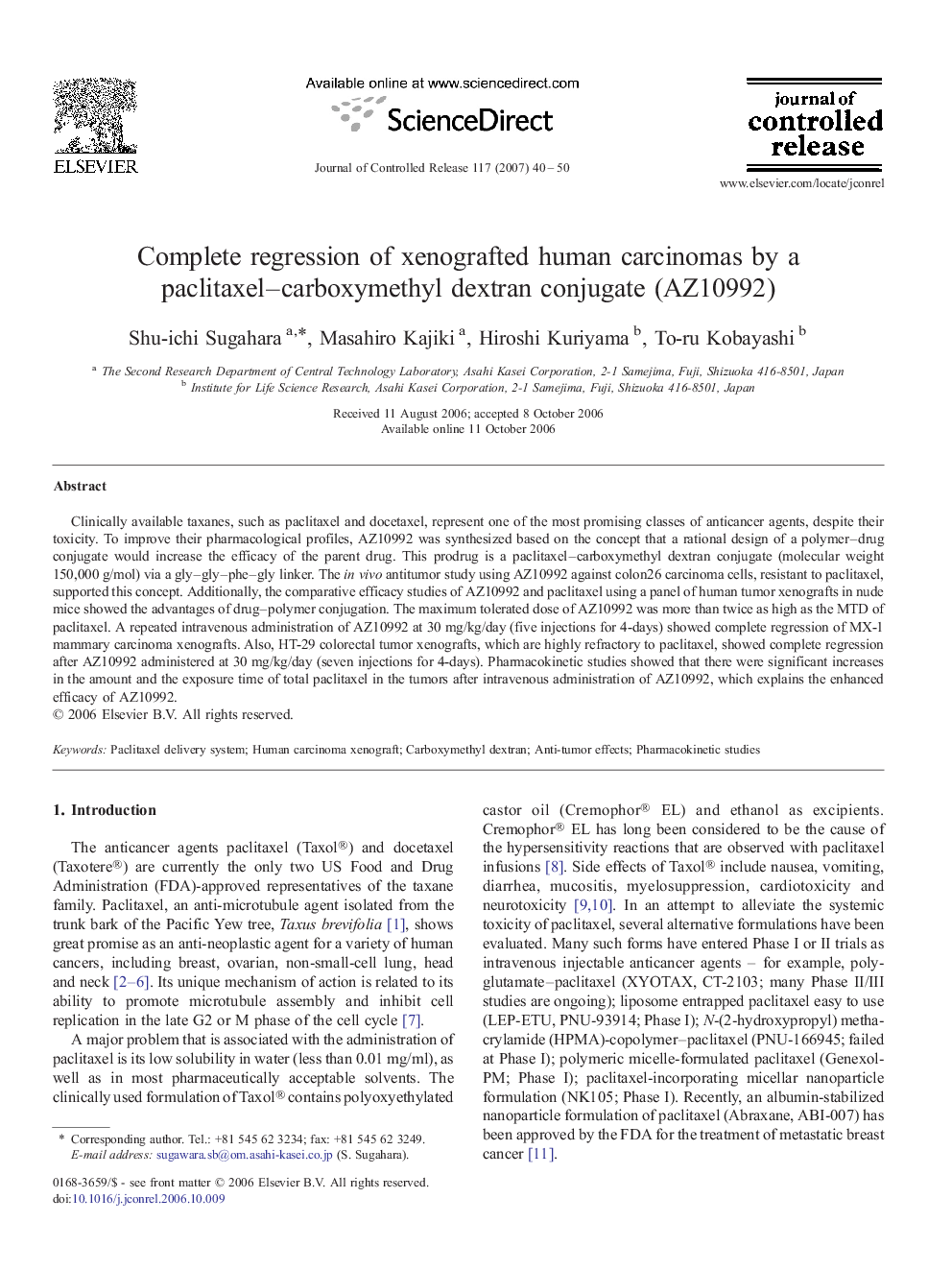| کد مقاله | کد نشریه | سال انتشار | مقاله انگلیسی | نسخه تمام متن |
|---|---|---|---|---|
| 1427287 | 986857 | 2007 | 11 صفحه PDF | دانلود رایگان |

Clinically available taxanes, such as paclitaxel and docetaxel, represent one of the most promising classes of anticancer agents, despite their toxicity. To improve their pharmacological profiles, AZ10992 was synthesized based on the concept that a rational design of a polymer–drug conjugate would increase the efficacy of the parent drug. This prodrug is a paclitaxel–carboxymethyl dextran conjugate (molecular weight 150,000 g/mol) via a gly–gly–phe–gly linker. The in vivo antitumor study using AZ10992 against colon26 carcinoma cells, resistant to paclitaxel, supported this concept. Additionally, the comparative efficacy studies of AZ10992 and paclitaxel using a panel of human tumor xenografts in nude mice showed the advantages of drug–polymer conjugation. The maximum tolerated dose of AZ10992 was more than twice as high as the MTD of paclitaxel. A repeated intravenous administration of AZ10992 at 30 mg/kg/day (five injections for 4-days) showed complete regression of MX-1 mammary carcinoma xenografts. Also, HT-29 colorectal tumor xenografts, which are highly refractory to paclitaxel, showed complete regression after AZ10992 administered at 30 mg/kg/day (seven injections for 4-days). Pharmacokinetic studies showed that there were significant increases in the amount and the exposure time of total paclitaxel in the tumors after intravenous administration of AZ10992, which explains the enhanced efficacy of AZ10992.
Journal: Journal of Controlled Release - Volume 117, Issue 1, 22 January 2007, Pages 40–50